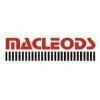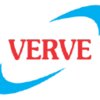

Lupin





10+ Lupin Production Officer Interview Questions and Answers
Q1. 1) What is Distillation column 2) Chlorine Gas TLV limit 3) All Reactor Types and handling
Questions related to distillation column, chlorine gas TLV limit, and reactor types and handling.
Distillation column is a separation process used to purify or separate components of a mixture.
TLV limit for chlorine gas is 1 ppm (parts per million).
Reactor types include batch, continuous stirred tank, plug flow, and fluidized bed reactors. Handling involves proper safety measures and monitoring of reaction conditions.

Q2. Which types of capsule
There are two types of capsules - hard and soft gelatin capsules.
Hard capsules are made of two pieces that fit together and are filled with powder or pellets.
Soft gelatin capsules are made of a single piece and are filled with liquid or semi-solid substances.
Capsules can also be categorized by their size, color, and shape.
Examples of capsules include Tylenol, Advil, and Vitamin E capsules.

Q3. What are the differences between HPLC and uplc
HPLC and UPLC are both analytical techniques used in chemistry to separate, identify, and quantify components in a mixture.
HPLC stands for High Performance Liquid Chromatography, while UPLC stands for Ultra Performance Liquid Chromatography.
UPLC uses smaller particle sizes in the column packing material, resulting in higher resolution and faster analysis times compared to HPLC.
UPLC typically operates at higher pressures and flow rates than HPLC.
HPLC is more commonly used for ...read more

Q4. Which critical parameters of coating process
Critical parameters of coating process include temperature, humidity, coating thickness, drying time, and coating uniformity.
Temperature control is crucial to ensure proper curing of the coating material.
Humidity levels can affect the drying time and adhesion of the coating.
Coating thickness must be monitored to meet specifications and ensure product quality.
Drying time should be optimized to prevent defects like cracking or blistering.
Coating uniformity is important for cons...read more

Q5. What is unit operation and process
Unit operation is a single step in a process while process is a series of interconnected unit operations.
Unit operation is a distinct step in a chemical engineering process.
Process is a series of interconnected unit operations that work together to achieve a desired outcome.
Examples of unit operations include distillation, filtration, and mixing.
Examples of processes include production of pharmaceuticals, food processing, and wastewater treatment.

Q6. How many defects in coating process
The number of defects in the coating process can vary depending on various factors such as equipment, materials, and operator skill.
Defects in coating process can include uneven coating thickness, bubbles or air pockets, streaks, and contamination.
Common causes of defects include improper equipment calibration, poor quality materials, inadequate training of operators, and environmental factors.
Regular quality control checks and maintenance can help reduce the number of defect...read more

Q7. What is DATA INTIGRIY
Data integrity refers to the accuracy, consistency, and reliability of data throughout its lifecycle.
Ensuring data is accurate and reliable
Maintaining consistency of data
Preventing unauthorized access or modifications
Implementing data validation processes
Regularly backing up data to prevent loss

Q8. What is tablets define
Tablets are solid dosage forms that contain medicinal substances and are intended for oral administration.
Tablets are made by compressing a mixture of active ingredients and excipients.
They come in various shapes, sizes, and colors.
Tablets can be coated to make them easier to swallow or to protect the active ingredient from degradation.
Examples of tablets include aspirin, paracetamol, and ibuprofen.
Tablets are one of the most commonly used dosage forms in medicine.


Q9. Tell me your about salf
I have a Bachelor's degree in Production Engineering and 5 years of experience in manufacturing processes.
Bachelor's degree in Production Engineering
5 years of experience in manufacturing processes

Q10. Handling of Validation
Validation in production involves ensuring that processes and products meet quality standards.
Validation involves verifying that equipment, processes, and systems are operating correctly and consistently.
Validation also includes confirming that products meet specifications and quality standards.
Documentation of validation activities is essential for regulatory compliance and continuous improvement.
Examples of validation activities include equipment qualification, process vali...read more

Q11. Handling of Safety permits
Safety permits are essential for ensuring compliance with regulations and maintaining a safe work environment.
Safety permits are required for certain activities or equipment to ensure they meet safety standards.
Production officers must be familiar with the types of safety permits needed in their industry.
They are responsible for obtaining and renewing safety permits as needed.
Failure to comply with safety permit requirements can result in fines or shutdowns.
Examples of safety...read more

Q12. Operation of Distillation
Distillation is a process used to separate components of a liquid mixture based on differences in boiling points.
Distillation involves heating the liquid mixture to create vapor, then cooling the vapor to condense it back into liquid form.
The components with lower boiling points will vaporize first and be collected as the distillate, while the components with higher boiling points remain in the original container.
Common examples of distillation include the production of alcoh...read more

Q13. Handling of Deviations
Deviations in production processes must be promptly identified, investigated, and documented to ensure product quality and compliance.
Deviation should be reported immediately to the appropriate personnel
Investigate the root cause of the deviation
Document all findings and actions taken
Implement corrective and preventive actions to prevent recurrence
Review and approve deviation reports before closure

Q14. Handling of Batch failures
Batch failures should be analyzed to identify root causes and prevent future occurrences.
Investigate the root cause of the batch failure
Implement corrective actions to prevent future failures
Document the findings and actions taken for future reference
Communicate with relevant stakeholders about the batch failure and resolution
Conduct a review of the production process to identify potential areas for improvement

Q15. What are the production
Production refers to the process of creating goods or services using resources like labor, machinery, and raw materials.
Production involves converting inputs into outputs through various processes.
Efficient production requires proper planning, organization, and control.
Examples of production activities include manufacturing, farming, and construction.

Q16. What is chlorination
Chlorination is the process of adding chlorine to water or other substances to disinfect and kill bacteria and other harmful microorganisms.
Chlorination is commonly used in water treatment plants to make drinking water safe for consumption.
It is also used in swimming pools to kill bacteria and prevent the spread of waterborne illnesses.
Chlorination can be done using chlorine gas, liquid chlorine, or chlorine compounds like sodium hypochlorite.
The amount of chlorine added duri...read more

Q17. Handling of CAPA
CAPA refers to Corrective and Preventive Actions taken to address non-conformities and prevent recurrence.
Identify the root cause of the issue
Develop a corrective action plan to address the issue
Implement the corrective action plan
Monitor the effectiveness of the corrective action
Implement preventive actions to prevent recurrence

Q18. Tell me higher study
Higher study refers to pursuing education beyond undergraduate level, such as postgraduate or doctoral studies.
Higher study involves pursuing education beyond undergraduate level
It can include postgraduate or doctoral studies
Higher study can lead to specialized knowledge and career advancement

Q19. Experienced in Pharmaceutics
Yes, I have experience in Pharmaceutics.
I have a Bachelor's degree in Pharmaceutical Sciences.
I have worked as a Production Officer in a pharmaceutical company for 5 years.
I am familiar with Good Manufacturing Practices (GMP) and FDA regulations.
I have experience in formulation development and process optimization.
I have knowledge of pharmaceutical packaging and labeling requirements.

More about working at Lupin









Interview Process at Lupin Production Officer

Top Production Officer Interview Questions from Similar Companies






Reviews
Interviews
Salaries
Users/Month












